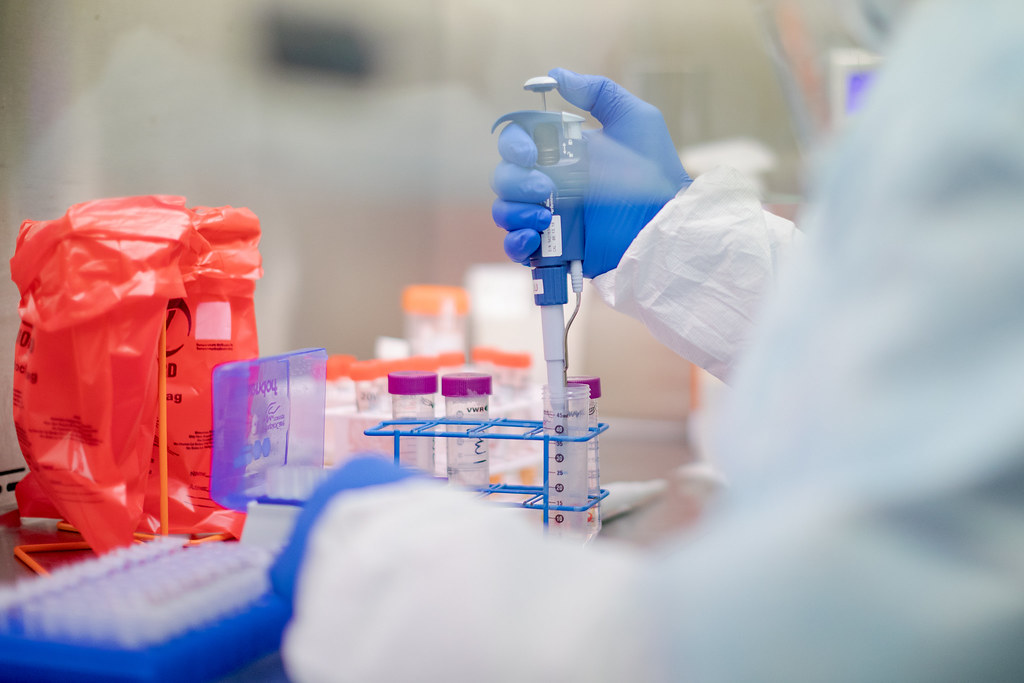Views expressed in opinion columns are the author’s own.
Preemptively reopening states has caused an unprecedented rise in the number of COVID-19 cases. As of July 13, 2020, the U.S. has managed to break the single-day record for new cases seven times in 11 days. Despite these grim prospects, there may be a sliver of hope: The U.S. government is currently spending hundreds of millions of dollars for the development of a vaccine. Dr. Anthony Fauci, one of the nation’s most prominent infectious disease experts, is “cautiously optimistic” that it will be ready by early 2021.
Realistically, once the vaccine is developed, it could take months before it becomes widely available. This delay in distribution raises an obvious question: Who should be the first people to get vaccinated?
National officials, essential workers and those considered at higher risk for severe symptoms, such as the elderly, are obvious choices. Officials and experts are also considering what seems to be a controversial option: prioritizing certain ethnic and racial groups that have been disproportionately affected by the pandemic. In light of the evidence, which points toward structural issues afflicting these populations, this would not only be a valid but necessary approach to finally contain COVID-19.
It’s no secret that Black and Latino communities are being hit especially hard by this pandemic. These groups are much more likely both to become infected and to die from the coronavirus. The underlying causes can be attributed to compounding risk factors and a lack of protective measures. These populations are more likely to suffer from occupational risks, more likely to have underlying conditions and less likely to have health insurance.
What’s striking here is that some of these factors are the direct consequences of larger structural issues. Health disparities can be attributed to various inequalities — concerning wealth, education and housing, among others — which in turn are perpetuated by racism.
Some critics have argued prioritizing certain minority groups could exacerbate public distrust of our government and prolong the pandemic by impeding vaccination efforts. While the efficacy of the vaccine is a valid concern, the idea that prioritizing certain racial and ethnic groups might somehow erode public trust and lead to reduced compliance is bogus and ignores the deep-rooted distrust of the health care system by Black individuals.
According to a recent survey, only 54 percent of Black adults said they would definitely or probably get a vaccine if it were available today, while 74 percent of white adults responded the same. Similar disparities can be seen when asked about general attitudes toward medical research or the benefits of vaccines. This distrust can be partly traced back to the Tuskegee syphilis study, a grossly unethical experiment that recruited Black men with syphilis under false pretenses and gave them fake treatment so researchers could observe the natural course of the disease. According to one researcher, the study “revealed more about the pathology of racism than it did about the pathology of syphilis.”
This distrust of health care is a major issue, not only because it may lead to reduced vaccination but also because it discourages Black adults from participating in clinical trials. Developing an effective vaccine for COVID-19 requires a diverse group of subjects for clinical trials, to account for the latent effects of race and socioeconomic factors on reactions to drugs. If anything, prioritizing groups that have been disproportionately affected by this pandemic could help restore the faith of Black Americans in our flawed health care system.
Directing vaccination efforts toward certain racial and ethnic groups would help address health disparities unique to Black and Latino populations, while simultaneously instilling greater trust in our health care system. While COVID-19 may indiscriminately affect everyone, as a nation we discriminate when it comes to health care. It’s time to rectify those biases.
Kevin Hu is a rising junior physiology and neurobiology major. He can be reached at kevxhu@gmail.com.



